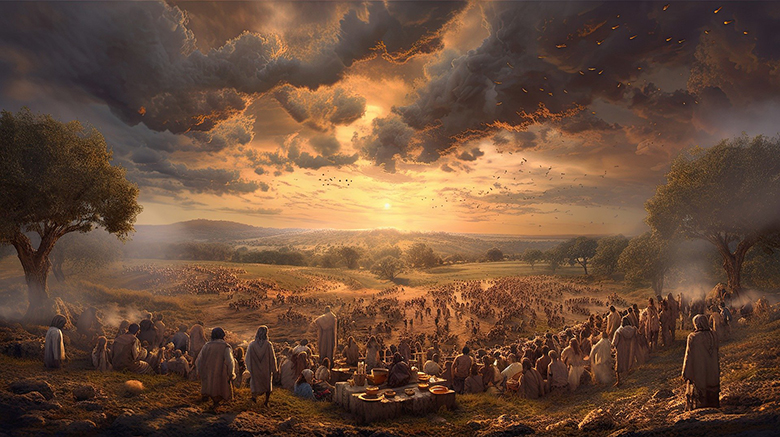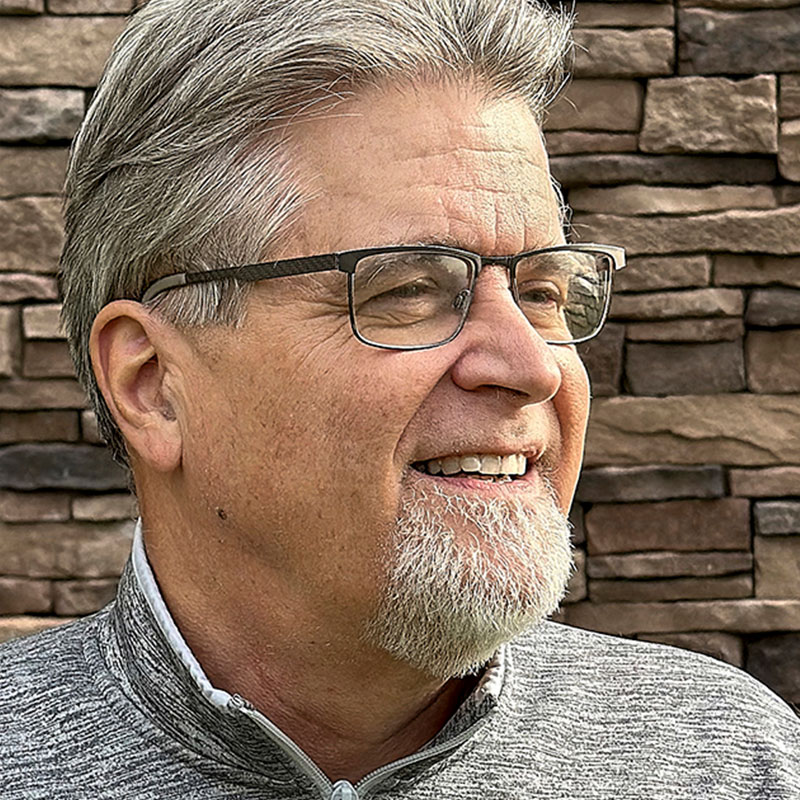
The following is from my book, Craft Brewed Jesus, published in 2016. I still stand by these ideas and discoveries. Enjoy!
__________________
A Much Needed Faith Shift
Starting about three years after my conversion to Christ within the evangelical movement, I started a faith shift. Over a period of twenty-plus years (very slowly for most of the time) I transformed from a typical evangelical believer to a “progressive” Christ follower. At the height of the shift, around 2005-2008, when the changes started to grow exponentially, my pendulum of faith swung very far to the left. This was the period of time that Kathy Escobar would call the “Unraveling” stage.
Although I never became an agnostic or atheist, I was angry and confused over two major areas: One, how the leading voices of the traditional conservative church made up of both evangelicals and fundamentalists, whether consciously or unconsciously, never tried to learn the historical facts about myriad issues; they appeared to cover up the truth about how the New Testament was compiled, how most biblical scholars approach the texts in an historical-critical manner with the historical/cultural context in mind, the many mistranslation issues, the real problems with the doctrines of inerrancy, hell, and the traditional view of sex and homosexuality, and the history of the prevalence of Universalism, to name only a few. It was like they lied to me. “Trust us. This is what the Scriptures teach,” they said. But, anyone who looked under the hood and used a little common sense and consulted sound scholarship could tell you, “No, that’s not exactly what the Scriptures teach.” Most of us just didn’t bother to look under the hood.
The second thing that bothered me was how so few of my evangelical friends seemed to care about these things. Who cares if “eternal punishment” is mistranslated? Or, it’s impossible for that to be, so don’t even consider it. It was a don’t-confuse-me-with-the-facts-I’ve-already-made-up-my-mind mentality. No one wanted to uncover what might be something closer to the mind of God and the original meaning of the New Testament. In other words, they appeared to care more about evangelical tradition than the truth of the historical Jesus Movement and even what the Bible really says. It was too controversial. It was too outside the box. It rocked the boat too much. When I didn’t relent, I was criticized and deemed an apostate.
During this “Unraveling” stage, I made many mistakes. I grew bitter. I lost patience with evangelical friends and family. I succumbed to something that much of America and its religious and secular institutions are locked into—an “us-vs-them” mentality. But as I further evolved into a more stable and understanding “Rebuilding” stage, I realized that at the end of the day, despite my philosophical and theological differences with evangelicals, we really are on the same team.
There is No “Us vs. Them”
I believe my story represents one of the hallmarks of Jesus’ teachings and the good news of the loving reign of God—that all of humanity, despite our cultural, economic, and religious differences, is really on the same team, whether people realize it or not. There is no “us vs. them.” The sooner we recognize this and leave behind our us-vs.-them, fundamentalist ways, whether it’s a conservative, progressive, liberal, New Age, or secular brand of fundamentalism, the sooner we can get on with the business of making the world a better place through the vehicle of love. Of course, many people will continue to treat others as “them fundamentalists,” “them evangelicals,” “them progressives,” “them liberals,” or “them heretics,” but we don’t have to share that attitude. (It’s also prevalent in politics as we talk about “them Republicans” or “them Democrats.”) We can uncover and challenge fundamentalist extreme views that harm others without looking down on or disparaging or hating people who hold such views. Frankly, I still struggle with this. It’s easier to divide my world into neat boxes and demonize people who disagree or who I consider closed minded. But I’m convinced the former is the preferable way. At worst, “the other” is misguided. Extremists are brainwashed. We are all on a journey to find meaning and make sense of life and some of us lose our way. Although, we should challenge and confront anyone or any action that hurts other human beings, we need to do it with a dose of empathy and compassion.
This is one of the reasons I believe we should follow Jesus and his Path. The way of life he points us to leads to breaking down barriers and restoring estranged people. It comes with a price—the risk of persecution, danger, sacrifice, and even death when evil is confronted with the force of love (think Jesus, the Apostles, Luther, Gandhi, Martin Luther King, Jr, and Malala Yousafzai)—but it is well worth it.
And here’s the rub. As we learned in The Timeline [found in prior chapters], following Jesus doesn’t require one be a Christian the way we think of it. In other words, Christianity is optional.
Christianity is Optional
In 1978, the late psychiatrist M. Scott Peck wrote a book that became widely popular called The Road Less Traveled. Combining lessons learned in psychiatry and spirituality, Peck described four major attributes necessary to become a fulfilled human being. (1) Spiritual discipline (delayed gratification, personal responsibility, and pursuing and balancing “Truth”), (2) Actionable love for others and oneself, (3) Abandoning dysfunctional religion (not personal faith), and (4) Common grace (including the miracle of serendipity), a force that Peck believed originates outside human consciousness, that is, through God. The book became a best seller in 1984.
Because all four of these attributes are powerful “Christian” themes, some people thought Peck was hiding his Christianity in the book in order to subtly communicate a Christian message to readers. But Peck was not a Christian when he wrote that book. “I came to God through Zen Buddhism,” he writes. It was a combination of his experiences with Zen, Islamic mysticism, and his study of psychiatry that led him to embrace these “Christian” themes. Peck believes, as I do, that people can come to God through a variety of ways and religions. That’s because “God, unlike some organized religions, does not discriminate.” A loving God is not concerned with what institution or movement or medium is tapped. He or She works outside any religious boxes humans construct. Peck discovered the essence of the path of Christ through Zen Buddhism and his own experience with modern psychology.
But Peck’s Zen Buddhism was “just the first stretch of the road.” Many people don’t remember he later formally became a Christian (not the evangelical variety) after he wrote the book. He didn’t think he could have come to Christ without his experience with Zen, he said, because Zen taught him about paradox, and he sees the way of Jesus as a path of embracing paradox. But why Christ? Because Peck came to believe that Jesus’ life and love ethic (he calls it “Christian doctrine,” but he’s really talking about a spiritual path, not dogma) best approaches the reality of God and reality in general. In other words, the path Jesus paved makes sense. He cites the genius of Jesus as one reason. He cites Jesus’ understanding of the nature of sin as another. He’s not talking about the doctrine of original sin or human depravity, but simply the truth that Christ pinpoints all humanity as missing the mark. We obviously don’t always hit the bull’s eye in our actions and behaviors. We’re not perfect. In that sense, we are “sinners.” But here’s the paradox. In our God-image-bearing state, when we embrace humility and contrition when we’ve hurt others, we are also forgiven for missing the mark and given a clean slate. When we draw from within ourselves the attributes of that image-bearing state, we do hit the mark. We are also saints.
When Peck read the gospels for the first time he said he “discovered a man so incredibly real that no one could have made Him up.” Like many of us, Peck uncovered the pearls of wisdom in the New Testament that point us toward a new way to live. A way of life that shows us since we aren’t perfect we need humility. That since others aren’t perfect we need to learn to forgive them. That since the world isn’t perfect, we need to correct it, but only after we correct ourselves. That since God is perfect love (unbiased, consistent, and sincere), we need to receive his love and then pass it on. And, that this way of living life can be pursued outside organized religion, even outside Christianity. Or pursued within any spiritual path or faith that has outgrown fundamentalism. Since Christ wasn’t a Christian, we don’t have to be.
Embrace the Genius of Jesus… and Other Wisdom Teachers
Yet perhaps the world really would become a better place if people followed Jesus’ way, if we recognized and embraced his genius. As Peck believed, when stripped of fundamentalist misinterpretations and misreadings, Jesus was arguably the wisest person who ever lived (According to Peck, the second wisest is the twelfth-century Muslim mystic Jalalu’l-Din Rumi. And according to Marcus Borg, Buddha’s wisdom was often on par with Jesus’). And just like many of us might pay attention to wise people like Rumi and Buddha, whatever our religion or lack thereof, we should probably pay closer attention to Jesus—the Jesus of history. Not revisionist history. Not tainted history. But a craft brewed history that taps a truer-to-life craft brewed Jesus.
************
Michael Camp tends the Spiritual Brewpub, and its Podcast, which both help disillusioned or post-evangelicals uncover historical facts and insights that help them deconstruct, rethink, and rebuild a more authentic faith or spirituality. He is the author of Breaking Bad Faith: Exposing Myth and Violence in Popular Theology to Recover the Path of Peace. To get specific help deconstructing conservative Christianity and rebuilding healthy faith, see Michael’s Religious Deconstruction Workshop.














